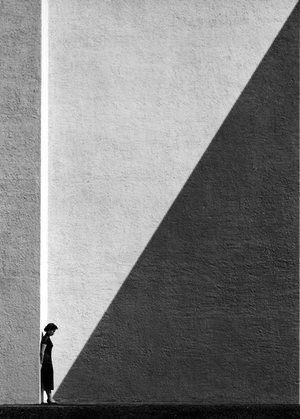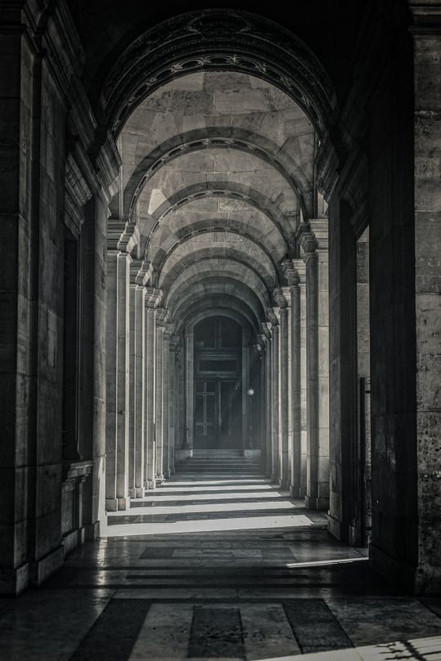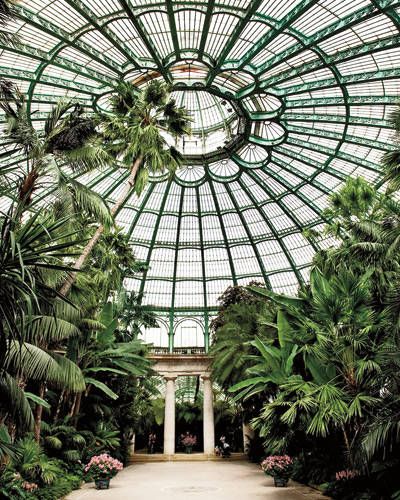#mondaymood: Get the 'D' straight from the 'S' word
- Laura Antoni

- Apr 25, 2020
- 7 min read
“If I had to choose a religion, the sun as the universal giver of life would be my god.”
Napoleon Bonaparte

1. " the luminous celestial body around which the earth and other planets revolve, from which they receive heat and light, which is composed mainly of hydrogen and helium, and which has a mean distance from earth of about 93,000,000 miles (150,000,000 kilometers), a linear diameter of 864,000 miles (1,390,000 kilometers), and a mass 332,000 times greater than earth"
2. " The sun will give off light and bring about life. The sun is one of the luminaries and a star. He symbolises self. He will represent people’s personalities and egos and their spirit. He will make people original. The sun is the identity and the face that the world will see. He will encourage creativity. He gives people the power to meet the challenges in their every day life."
3. "The sun is the luminous celestial body that is the source of light and heat for the planets in the solar system. The very planet we live in, the Earth, revolves around the sun and receives light and warmth from it. "
Almost all of the energy used on the Earth comes originally from the sun. Astronomers studied the sun in several ways, understanding its functions and applying it to our world today. There are several studies conducted by the scientists. regarding different. benefits. and interests regarding the. sun and there are still so many questions to be answered. For as long ago as we can go, people were interested by the sun, worshiping it's energy . Sun still plays an important role in almost all religions and spiritual beliefs. The study of the sun has led us to many understandings in science and advanced us in technology development.
To appreciate it and benefit from it, means to understand how it works, how important it is and how it can be implemented in your own life.

Sunlight is the source of all life on planet earth. We would not even exist if there was no sun. It nourishes the planet and all creatures. Plants do have the capability to absorb sunlight and transform it into their own food. If you perceive it from this perspective, we can say that more complex creatures, like humans or animals, wouldn’t even exist if there were no plants. They provide us with nutrients our bodies need to function and therefore are the base of growth and development.
Sun does not only provide us life force energy, but it also enables us to synthesise one of the most important nutrients for our bodies: Vitamin D. Actually, it is rather a hormone, not a vitamin. This process it's also called “photosynthesis” as the body synthesises a nutrient with the aid from light energy . It is a precursor for growth hormones in the body which therefore allows us to heal, repair, recover, and grow.
Vitamin D is an essential mineral for all people. This vitamin has numerous benefits including immune system regulation, body weight maintenance, asthma symptom control as well as helping to keep the brain working efficiently into later life. Exposure to sunlight is the primary method in which people receive a sufficient amount of vitamin D.
There’s a reason Vitamin D is called the “sunshine vitamin” – because your skin makes it when it’s exposed to the sun and sunshine is our key source of this important vitamin. A study conducted in 2010 found that Vitamin D influences the functioning of over 200 genes in our bodies. “Our study shows quite dramatically the wide-ranging influence that vitamin D exerts over our health,” says Dr. Andreas Heger from the MRC Functional Genomics Unit at Oxford, one of the lead authors of the study. Vitamin D influences the bones, intestines, immune and cardiovascular systems, pancreas, muscles, brain, the control of cell cycles, and more. Having your home set up to receive as much sunlight as possible can help you get some of your daily vitamin D, without you even having to think about it.
Beyond Vitamin D, the sun also stimulates your serotonin production which enhances mood levels and thus, leads to mental health and overall well-being. As you can imagine, sunlight can be regarded as a natural healer and is already used for therapeutic purposes: Heliotherapy makes use of the sun’s healing properties.
Every living being has a biological clock in it. It not only determines our sleep and waking patterns but also makes sure that all other processes in our body such as digestion, the functioning of kidneys, the release of hormones are adapted to one another and are activated at the correct time of the day. This biological timekeeping is even encoded in individual cells scheduling its activities. Basically, this clock is essential for the organism to live properly. For internal processes in the human body to work properly, this biological clock has to be synchronised with the environmental clock - "The Sun". This is the reason we sleep when after sunsets and wakes up after sunrise. Sun dictates all living beings when to eat, when to sleep, and when to mate (Three main tasks to ensure the survival of the organism) .

Thanks to scientific discoveries, we know for certain that life on Earth depends upon the sun. But long before scientists even discovered that our planet revolves around it, ancient cultures recognised the importance of the sun – and they had a multitude of legends, myths and even gods based on it.
In methodology, the sun is the bestower of light and life to the totality of the cosmos; with his unblinking, all-seeing eye, he is the stern guarantor of justice; with the almost universal connection of light with enlightenment or illumination, the sun is the source of wisdom.
'In ancient Egypt the sun god Re was the dominant figure among the high gods and retained this position from early in that civilisation’s history. In the myth . relating the voyage of the sun god over the heavenly ocean, the sun sets out as the young god Kheper; appears at noon in the zenith as the full-grown sun, Re; and arrives in the evening at the western region in the shape of the old sun god, Atum.
During the later periods of Roman history, sun worship gained in importance and ultimately led to what has been called a “solar monotheism.” Nearly all the gods of the period were possessed of solar qualities, and both Christ and Mithra acquired the traits of solar deities. The feast of Sol Invictus (Unconquered Sun) on December 25 was celebrated with great joy, and eventually this date was taken over by the Christians as Christmas, the birthday of Christ.
The most famous type of solar cult is the Sun Dance of the Plains Indians of North America. In the pre-Columbian civilisations of Mexico and Peru, sun worship was a prominent feature. In Aztec religion extensive human sacrifice was demanded by the sun gods Huitzilopochtli and Tezcatlipoca. In both Mexican and Peruvian ancient religion, the Sun occupied an important place in myth and ritual. The ruler in Peru was an incarnation of the sun god, Inti. In Japan the sun goddess, Amaterasu, who played an important role in ancient mythology and was considered to be the supreme ruler of the world, was the tutelary deity of the imperial clan, and to this day the sun symbols represent the Japanese state.'
The sun has captivated and inspired humanity since the dawn of our species, and these legends show how civilisations that had no contact with each other created fascinating stories to explain what it was and what it did for them.

'We don’t realise it, but light is perhaps one of the most important elements in interior design. Lighting plays with our perceptions, creates unique sensations and experiences and can completely change a design.'
Aside from health and energy saving benefits, natural light is also helpful for increasing the aesthetics of a space. Architects use natural light to make spaces appear larger, illuminate an interior structure and increase the beauty of a space. Natural light will have the same effects on your home.
Without proper light settings the home decor and its architectural beauty cannot be experienced to the fullest of its capacity. A well lit room assures a warm, inviting and functional atmosphere in your home. Hence, implementation of proper lighting is the primary element in interior design. It enhances every single corner in a room — from the furniture, flooring, fittings to the finishes and textures.
Light has the ability to shape form, and not just in an aesthetically pleasing way. Many designers actually use light to shape form in interiors to assist with "way-finding". When daylighting reveals form there can also be a spiritual awakening that seems to manifest its way throughout the space.
Natural light makes almost any space more inviting. Humans thrive in sunlight. Besides being crucial to our overall survival, manipulating natural light to our advantage makes it an extremely valuable natural resource. By keeping daylighting in mind when planning a space, interior designers can help the users of a space conserve energy, improve their well-being, increase their productivity, shape the habits of customers in a retail space, and manipulate shape within the design. It’s a resource with countless benefits to both people and the environment in which we live.
Light was always a great source of inspiration for various artists and related further into their creations - from architecture, to photography, paintings, music., etc.
There are plenty of ways to let more sunlight in your home. Some of them can be done from inside such as the paint on the walls, furniture etc. while others include adding more glass surfaces to your home and making a way for the sunlight to go through. In the end, the point is that you create a brighter space in any way possible. There are huge benefits of natural lighting in your home and having over all sunlight and that 'vitamin sunshine' into our lives and we should not ignore them.
There are many ways of benefiting from this 'source of power' and.. for each of us, we should try to apply what works best for us and makes us feel better and...brighter.
The sun: The source of creation, an essential nutrient for the human’s body, a divine healer, and simply the most potent tool for vibrancy in our life. No imitated light and no Vitamin D supplement can provide us with a multitude of benefits the direct sunlight has to our health and overall well-being. If we want to bring more life force, more vitality, vibrancy, and enthusiasm into your life, bring more sunshine into our life.
“Be like a flower: Turn your face to the sun.”
Khalil Gibran

Sources:
















































































































































































Comments